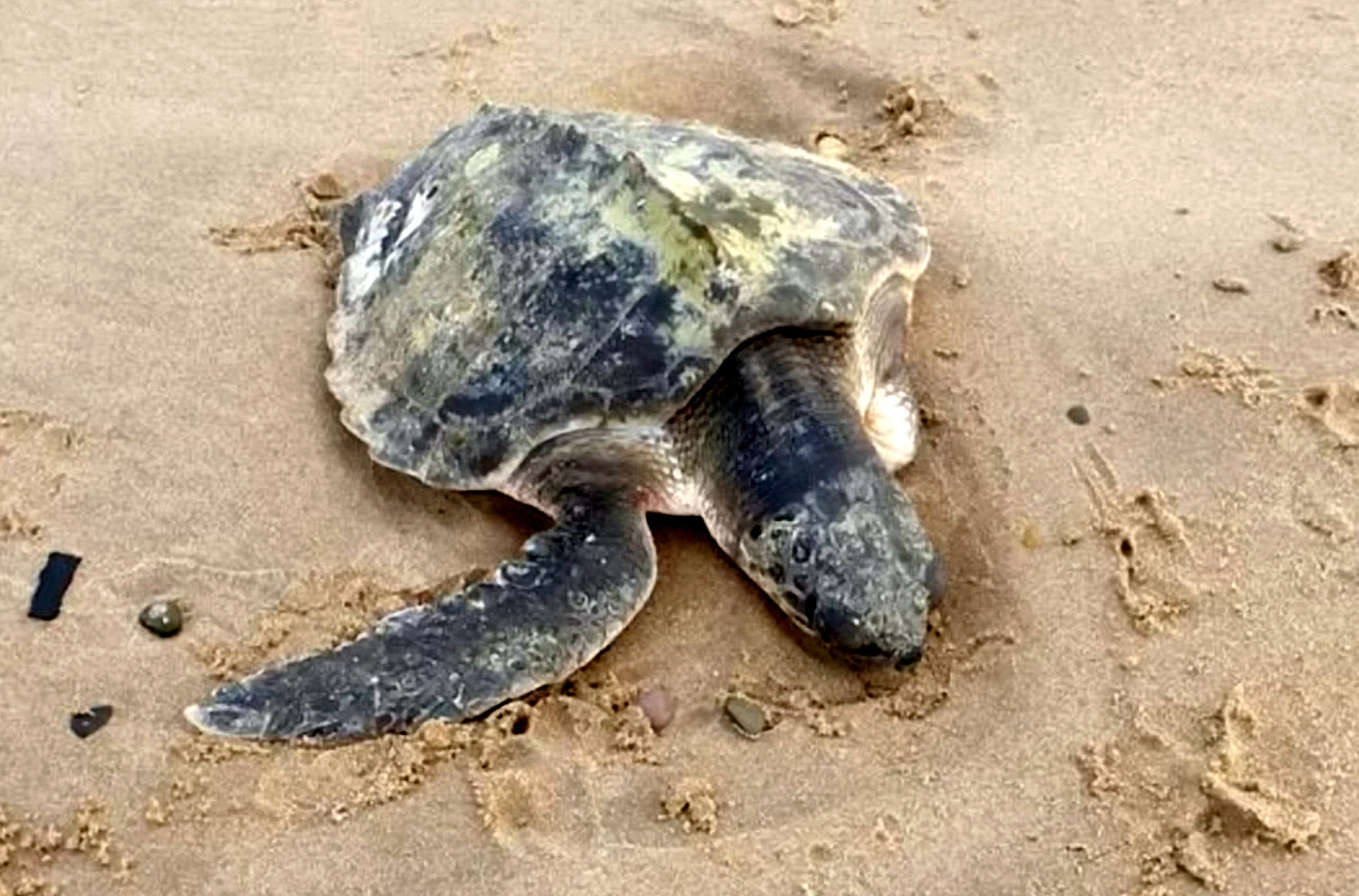World’s rarest sea turtle washes up on Wales beach 5,200 miles from home
Staff at the Anglesey Sea Zoo who are looking after the turtle said they are ‘extremely excited’ about its arrival

A rare sea turtle has washed up alive on Welsh beach - 5,200 miles away from its native Gulf of Mexico.
Anglesey Sea Zoo said the juvenile Kemps Ridley turtle was doing well after a critical 48 hours and staff are hopeful it can make a full recovery.
It is currently undergoing critical care and rehabilitation with hourly checks through the day and night, involving gradual rehydration and raising of its ambient temperature over time.
In 2008, the zoo cared for another rare turtle - an Olive Ridley turtle, nicknamed Menai - which was the first such turtle to be reported in UK waters since records began almost 200 years ago.
Experts have verified the latest find is a Kemps Ridley turtle - the world’s rarest species of turtle and critically endangered.
There are just two known breeding sites remaining for the species globally, both in the western Gulf of Mexico.
Frankie Hobro, director and owner of the Anglesey Sea Zoo said: “We are extremely excited that this magnificent little creature has washed up alive here in North Wales and it is particularly poignant that this has happened almost exactly five years after the arrival of ‘Menai’ who became so famous.
“It is fortunate that the turtle stranded on a beach where it was found quickly, otherwise it would certainly have died.
“Tropical turtles washed up on our shores may appear dead when they are in fact in a state of torpor, or physiological ‘shut down’ due to the unsuitably low temperatures, and if this is the case they may be revived and can make a full recovery under the right conditions.
“Our staff are working hard to rehabilitate this turtle, as we did successfully with Menai, and we hope that it will survive and be able to be flown back and released in warmer waters once it is strong enough.
“However it is early days and a very critical time so we cannot be certain yet that it will pull through.
“The Anglesey Sea Zoo believes that the best place for large migratory marine animals, such as sea turtles, is in the wild, and we do not believe in having such species on long term display.
“Therefore this turtle is not on public display at the Sea Zoo, it will continue to be cared for behind the scenes in the specialised and controlled environment which it needs to be properly treated and rehabilitated.
“Should it survive, we would be delighted to see it eventually returned to the wild where it belongs”.
Subscribe to Independent Premium to bookmark this article
Want to bookmark your favourite articles and stories to read or reference later? Start your Independent Premium subscription today.

Join our commenting forum
Join thought-provoking conversations, follow other Independent readers and see their replies